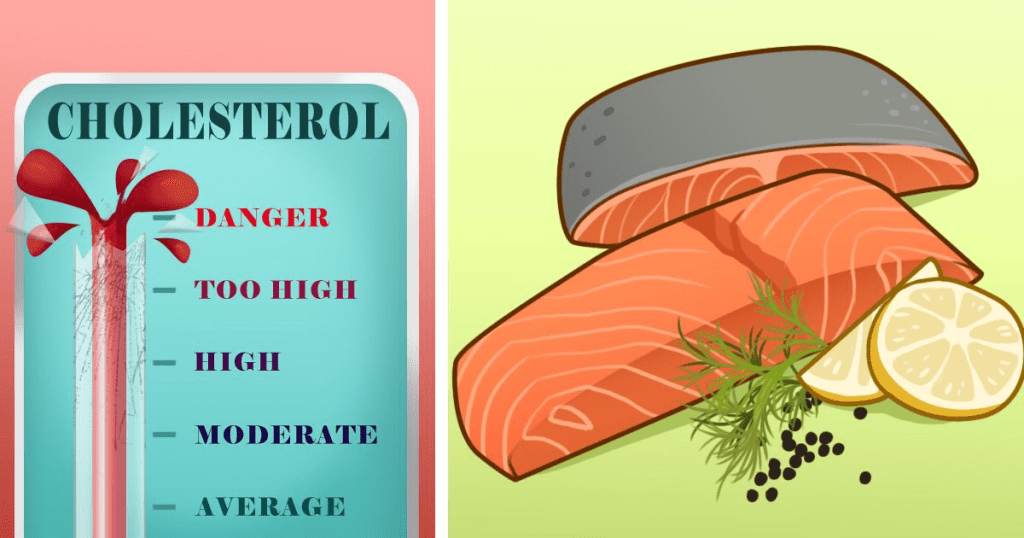No one likes hearing that their cholesterol levels are too high. Elevated cholesterol can lead to serious health risks, such as hardened arteries, heart attacks, and strokes. For many, the immediate reaction is to rely on medication, but that’s not always the first step you should take.
The good news? Managing cholesterol often boils down to a few simple lifestyle changes. By paying close attention to what you eat, how you move, and your overall habits, you can make a big difference. Before making significant changes, always consult with your doctor.

1. Cut Out Trans Fats and Limit Saturated Fats
Trans fats and saturated fats are some of the biggest culprits when it comes to high cholesterol. Found in processed foods, fried snacks, baked goods, and even some fast food, trans fats can raise LDL (bad cholesterol) while lowering HDL (good cholesterol).
To reduce trans fats, focus on avoiding products with “partially hydrogenated oils” on their labels. Saturated fats, found in red meat, butter, cheese, and full-fat dairy products, should also be consumed in moderation.
But here’s the catch: don’t replace these fats with sugary foods or refined carbs, which can be just as bad for your heart. Instead, make gradual swaps for healthier alternatives like plant-based oils or leaner protein options such as chicken and turkey.
2. Embrace Healthy Fats: Polyunsaturated and Monounsaturated Fats
Not all fats are created equal! In fact, some fats are excellent for your heart. Polyunsaturated and monounsaturated fats can help lower LDL cholesterol while boosting HDL levels.
So, where do you find these healthy fats? Start by adding more olive oil, avocado, peanut oil, and canola oil to your cooking. For a protein-packed source of good fats, include fatty fish like salmon, trout, sardines, and tuna in your diet. These are rich in omega-3 fatty acids, which are particularly effective at improving heart health.
When you’re craving a snack, reach for nuts and seeds. Almonds, walnuts, and sunflower seeds are nutrient-dense options that will keep your heart happy.
3. Boost Your Fiber Intake
Fiber isn’t just good for digestion—it also plays a significant role in lowering cholesterol. Soluble fiber, in particular, binds with cholesterol in your digestive system, helping to flush it out before it enters your bloodstream.
Foods high in soluble fiber include:
- Whole grains: Oatmeal, barley, and quinoa.
- Legumes: Beans, lentils, and chickpeas.
- Fruits and vegetables: Apples, oranges, carrots, and Brussels sprouts.
Aim to incorporate a variety of colorful fruits and veggies into your meals. Harvard Medical School suggests that deeper-colored produce, such as berries, kale, and spinach, tends to have more heart-healthy nutrients.
4. Get Moving: Exercise for a Healthier Heart
It’s easy to overlook how impactful regular exercise can be for cholesterol management. Engaging in aerobic activities for just 30 minutes a day, four to five days a week, can help boost your HDL (good cholesterol) while reducing LDL.

The best part? You don’t need to run a marathon to see results. Simple activities like brisk walking, cycling, swimming, or even dancing can make a difference.
Not a fan of traditional workouts? No problem. Find an activity you enjoy—whether it’s gardening, hiking, or playing a sport—and make it part of your routine. Regular movement also contributes to weight loss, which further supports healthy cholesterol levels.
5. Manage Stress to Protect Your Heart
Believe it or not, stress can wreak havoc on your cholesterol levels. When we’re stressed, our bodies release hormones that may drive up cholesterol production. Over time, chronic stress can contribute to cardiovascular problems.
The solution? Find ways to relax and recharge. Activities like yoga, meditation, and deep-breathing exercises are great for calming your mind and lowering stress. Don’t underestimate the power of laughter, either—it’s a natural stress reliever and can do wonders for your heart.
Make time for hobbies, spend time with loved ones, and set boundaries to prevent burnout. Managing stress isn’t just good for your cholesterol—it’s good for your overall well-being.
Why Lifestyle Changes Matter

Lowering cholesterol naturally is about more than just making a few dietary tweaks. It’s a holistic approach to taking better care of your body and mind. By addressing your eating habits, staying active, and managing stress, you’re building a foundation for long-term heart health.
Here’s the beauty of these changes: they don’t just lower cholesterol. They improve energy levels, reduce the risk of chronic diseases, and enhance your overall quality of life.
Key Takeaways for Managing Cholesterol at Home
To sum it up, managing cholesterol at home involves making smart, sustainable lifestyle adjustments. Start by reducing harmful fats, incorporating healthy fats, and boosting your fiber intake. Add regular exercise to your routine and find ways to manage stress effectively.
These steps may sound simple, but their impact is profound. With consistency and commitment, you can take control of your cholesterol levels without relying solely on medication.
And remember, always keep your doctor informed about any changes you make. Together, you can craft a plan that works best for your health goals.
Conclusion
High cholesterol doesn’t have to be a life sentence. By making intentional choices about what you eat, how you move, and how you manage stress, you can lower your cholesterol naturally and protect your heart.
It’s about taking charge of your health, one small step at a time. Start today—your heart will thank you.


